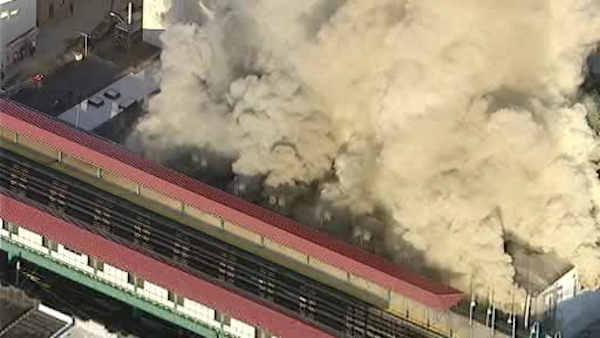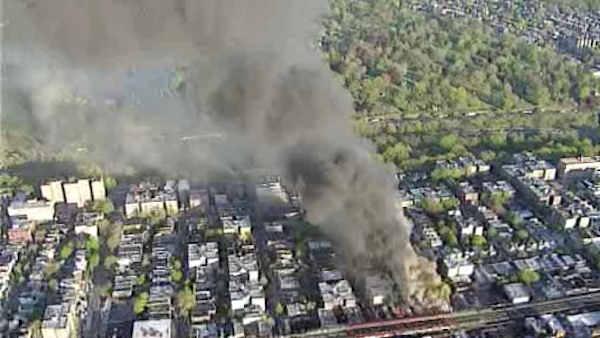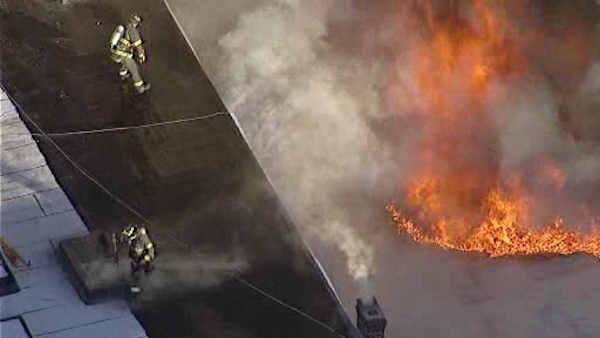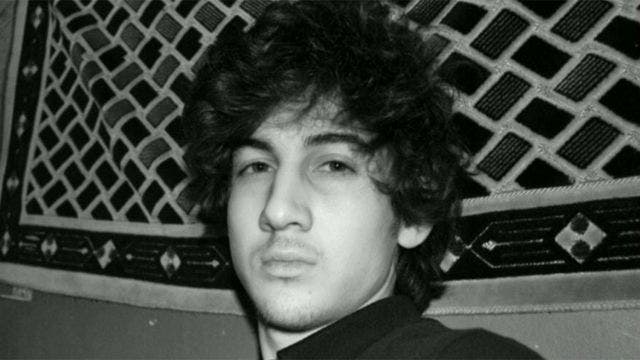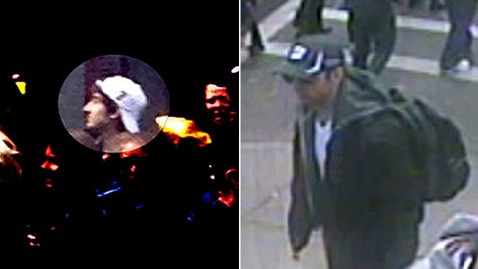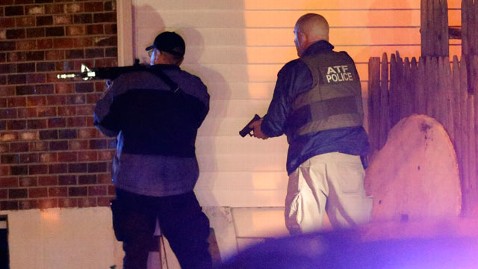White House spokesman Jay Carney said the decision not to treat Tsarnaev as an enemy combatant is "absolutely the right way to go and the appropriate way to go."
"We have a long history of successfully prosecuting terrorists and bringing them to justice and the president fully believes that that process will work in this case," Carney said.
The spokesman also noted that because Tsarnaev is a naturalized U.S. citizen, he cannot be tried by a military commission.
"And it is important to remember that since 9/11 we have used the federal court system to convict and incarcerate hundreds of terrorists," Carney said.
Despite being seriously wounded and heavily sedated, Tsarnaev is answering brief questions from his hospital bed by nodding his head, a source with first-hand knowledge of the investigation told CNN Monday.
Authorities are asking the 19-year-old if there are more bombs, explosives caches or weapons, and if anyone else was involved, the source said.
Investigators are going into Tsarnaev's room every few hours to ask questions in the presence of doctors, the source said.
It wasn't immediately clear what he may be communicating.
Tsarnaev, who is on a ventilator and restrained, has been hospitalized since authorities took him into custody Friday night after finding him hiding in a boat in the back yard of a Watertown, Massachusetts, home.
His injuries include a wound to the lower half of his body and a neck wound, the source said. It wasn't clear when he received the neck wound.
Tsarnaev had also lost a lot of blood and may have hearing loss from two flash-bang devices used to draw him out of the boat, the source said.
Investigators believe Dzhokhar Tsarnaev and his brother, Tamerlan Tsarnaev, were behind the attacks near the marathon's finish line that killed three people and wounded more than 170 others one week ago.
Tamerlan Tsarnaev, 26, died early Friday at a hospital after a shootout with police.
The developments came the same day as memorial services for two people killed in the bombings and a planned moment of silence to honor victims.
Elder suspect's wife
With one suspect dead and the other hindered in his ability to communicate, investigators are eager to speak to Tamerlan Tsarnaev's wife, Katherine Russell, to see what she might know about incidents leading up to the bombings.
On Monday, her attorney said she learned of her husband's alleged involvement through news accounts.
"She knew nothing about it at any time," Amato DeLuca said in response to questions about whether Russell knew of plans to attack the marathon.
Tsarnaev stayed home and cared for the couple's 2-year-old daughter while his wife worked long hours as a home care aide, according to DeLuca.
The family is devastated, the attorney said.
"They're very distraught. They're upset. Their lives have been unalterably changed. They're upset because of what happened, the people that were injured, that were killed. It's an awful, terrible thing," he said. "And of course Katy, it's even worse because what she lost -- her husband and the father of her daughter."
Police chief: The carnage could have been worse
In the tumultuous days after the bombings, the Tsarnaev brothers allegedly killed a university police officer, led authorities on a harrowing chase and hurled explosives at police, authorities said. Another officer, seriously wounded in a firefight with the suspects, was recovering Monday, Boston Police Commissioner Ed Davis said.
The brothers -- armed with handguns and explosives -- apparently were planning another attack before a shootout with police disrupted their efforts, Davis said.
"I believe that the only reason that someone would have those in their possession was to further attack people and cause more death and destruction," Davis said on CNN's "Starting Point" Monday.
Authorities believe the brothers bought bomb components locally but think that their guns came from elsewhere, another federal law enforcement official said. The official, who was not authorized to publicly discuss the case, said authorities are trying to trace the guns.
Investigators are also trying to determine whether anyone else was involved in the bombings.
But Davis, speaking Sunday to CNN's Don Lemon, said that he was confident that the brothers were "the two major actors in the violence that occurred."
"I told the people of Boston that they can rest easily, that the two people who were committing these vicious attacks are either dead or arrested, and I still believe that," the police chief said.
Details on shootout
The wild shootout that prompted the dramatic lockdown of the Boston area Friday began after a single officer gave chase after encountering the stolen car the brothers allegedly were driving, Watertown police Chief Edward Deveau told CNN's Wolf Blizter on Saturday.
According to Deveau, the brothers stepped out of the car and shot at the officer, who put his car in reverse to get away from the gunfire.
More officers arrived, sparking a firefight that lasted five to 10 minutes. More than 200 shots were fired, and one of the brothers threw explosives at police -- including a pressure cooker bomb similar to the one used at the marathon, Deveau said.
Eventually, Tamerlan Tsarnaev emerged from cover and began walking toward officers, firing as he went, the chief said.
When he ran out of ammunition, officers tackled him and tried to handcuff him, Deveau said Saturday.
But then, Dzhokhar Tsarnaev came barreling at them in the stolen vehicle, the chief said. The officers scrambled out of the way, and the vehicle then ran over the older brother and dragged him for a short distance.
Tamerlan Tsarnaev also had explosives on his body, officials have said.
Clues about radicalization?
While investigators piece together the brothers' actions leading up to the marathon bombings, details have emerged suggesting the elder Tsarnaev was turning radical.
The Tsarnaev family hails from the Russian republic of Chechnya and fled the brutal wars there in the 1990s. The two brothers were born in Kyrgyzstan, authorities said.
An FBI official said agents interviewed Tamerlan Tsarnaev in 2011 at the request of the Russian government. The FBI said Russia claimed that he was a follower of radical Islam and that he had changed drastically since 2010.
But the Russian government's request was vague, a U.S. official and a law enforcement source said Sunday. The lack of specifics limited how much the FBI was able to investigate Tamerlan, the law enforcement official said.
